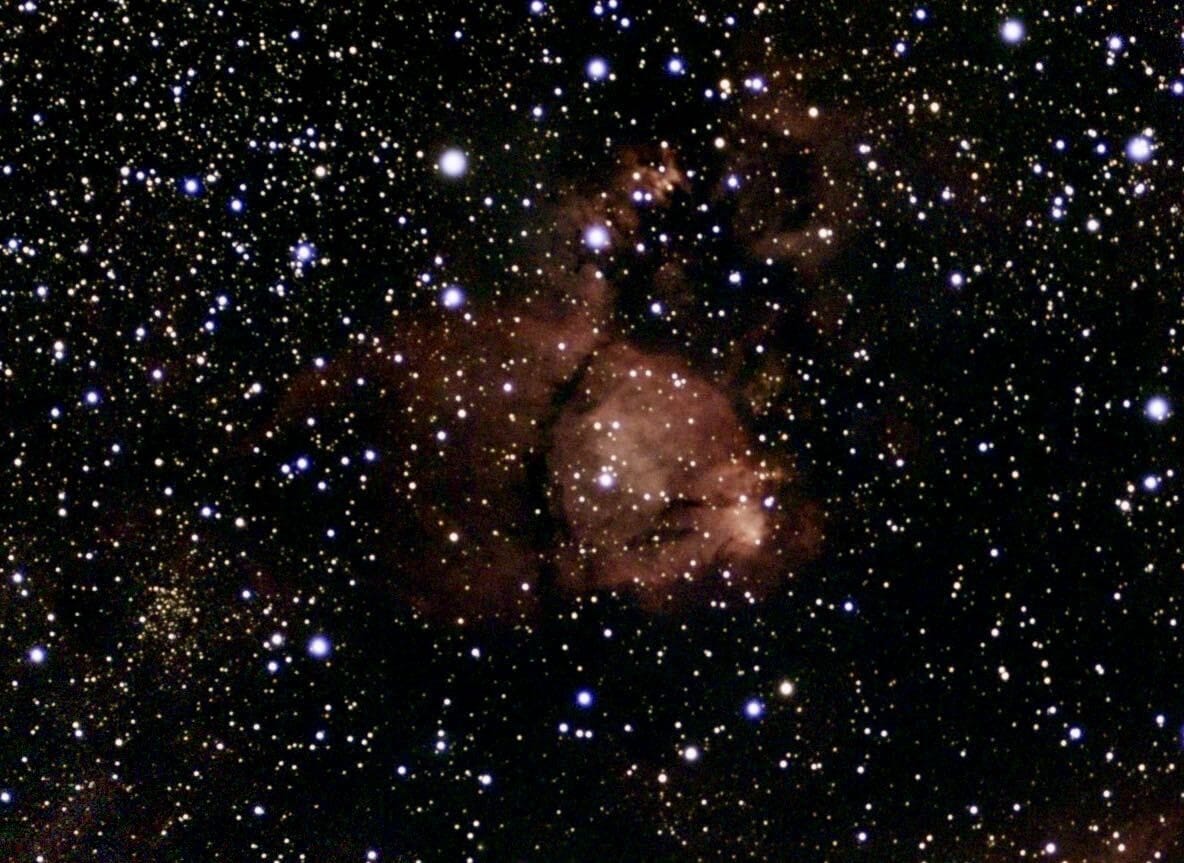On Bluesky, author/illustrator Brian Kirby has another entry in what's becoming a favorite (though admittedly petty) genre of mine: Chronicling the demise of X, Elon Musk's rapidly decaying social network-slash-hellmouth. And you're going to have to bear with me here, because I continue to find Musk's Twitter takeover to be an absolutely fascinating case study in how to destroy a tech company—and that's even without Musk's prior status as one of late stage capitalism's most notorious carnival barkers.
What Kirby's referring to is a trend that's being felt keenly right now among journalists, authors, publishers, and basically anyone who previously came to rely on Twitter as their means for communicating with their current or prospective audience. Say you've built up an audience of, oh, about 32,000 Twitter followers over the years. That's quite a solid number; it means, setting aside an omnipresent but ever-varying percentage of bots, that you can announce your latest project in your feed and have a reasonable expectation that fans or customers will see it. Not 32,000, mind you, since in order to see your announcement those customers will need to be watching Twitter either when you post or shortly after you've done it, but with a few reposts you could be fairly confident that you've spread the word as well as you can.
So, you've built up your nice little list of 32,000 personal or professional fans, and then Musk buys Twitter because he's a big baby who got fed up with having a megaphone that was three millimeters smaller than some other rich jerk's megaphone, and then stuff happens, and now here you are in August, 2024 trying to promote your new book and you blast it out to your 32,000 presumed fans and you get
7
likes, and
3
people willing to pass your message along.
That's it. Your total engaged audience, after broadcasting to ostensibly a stadium-sized crowd of people who specifically clicked a button saying they wanted to hear what you had to say, could travel comfortably to your doorstep in a single minivan.
What on earth is going on here?
The short answer is, of course, is that ex-Twitter is shedding its customer base at an alarming pace and so of those 32,000 followers a company might have gathered in the years before the Muskening, the vast majority of those followers are actually ghost accounts. They represent users who may have made their accounts years back, but who for various reasons abandoned the platform, simply choosing not to spend time on it anymore. If a Musk-employed X technician were to run a basic database query they could easily learn how many of those 32,000 "followers" have actually signed into their accounts in the last 3 or 6 months, but that's not information they're going to be sharing with the rest of us.
But ghost accounts have been a known thing for a very long time, probably surpassing even the bots in raw numbers, and authors and publishers could still count on getting engagement numbers well within the hundreds when announcing some new Big Deal. The collapse in engagement X is seeing after Musk's takeover is much more dramatic. It doesn't matter what statistics Musk does or doesn't announce, or which advertisers stay or which leave—this statistic is the real ballgame. Engagement numbers that can't even reach a dozen, for an account that boasts over 30,000 supposed fans, is an outright apocalypse.
And that is what I find fascinating, because those of us who know a thing or two about the tech business, about sociology, or about modern consumer culture know that it's usually shockingly difficult to achieve this sort of wholesale platform abandonment. Consumers are quite resilient, when faced with new forms of corporate abuse. They don't change their habits very often or very quickly; activists, in particular, are keenly aware of just how futile nearly every sought-for company "boycott" turns out to be, because even of the small percentage of consumers you can convince to listen, most will simply rationalize away your concerns and keep reaching for the same box or can or bottles.
Oh, you say this brand of baby food contains 0.5% real baby? Well I still imagine that's in line with the other brands, so I'm gonna stick with it.
To make the point as succinctly as I can make it, then, what I find fascinating about ex-Twitter's engagement collapse is that it shouldn't even be possible to engineer one so dramatic. That's what's so mystifying: No matter how much Elon Musk sucks at business, from a strictly technical sense he would have had to all but set fire to the company's server banks to shed active users at the rate he's shedding them. This isn't about "oh, the company's so much more tolerant of white supremacists now." Take a good look at America: Do you really think Americans shy away from involving themselves with white supremacists? Do we imagine ex-Twitter's userbase is shunning the platform because Musk owns it, or because he's unbanned some previously banned people? You and I wish.
Something broke, inside ex-Twitter, and it broke hard enough to force Twitter's own customer base off the platform in the rough span of a single year.
No, what's happening here isn't a boycott or even general user ennui. Something broke, inside ex-Twitter, and it broke hard enough to force Twitter's own customer base off the platform in the rough span of a single year. If you're an author dependent on "X" to reach your fans, that's been catastrophic. If you're Elon Musk, it's almost comically humiliating—or would be, if he was paying attention. But from a strictly tech-and-tech-management perspective it's a fascinating development. It's like watching the peak-obliterating explosion of a long-dormant volcano. Scientists will want to put an array of instruments all around this thing, measuring every last twitch and tremor, to see just how the company's managers managed to achieve a scale of damage that's usually thought to be near-impossible.
From that strictly tech-and-tech-management perspective, stripping out all the showboating that Musk tries to pass off as a personality and focusing on his actual actions, I think the case can be made that Musk made the decision that destroyed now-not-Twitter within days of buying it. He broke the core product right then, right at the beginning—and he didn't even know it, because he didn't know what the company's product was and wasn't interested in finding out.
Again from Brian Kirby:
I participated in 2 events for kid’s books in the past year on X, and each had grisly - I mean horrific - photos of slaughtered children posted to the hashtag. It’s stunning that anyone is still very active there.
Ah. Yeah, that's ... that's going to have an impact.
One of Musk's first acts was to fire, well, basically everyone in then-Twitter that wasn't one of his handful of tagalong yes-men. That included the vast majority of the tech teams and, critically, the armies of moderators any world-spanning social network needs in order to not be inundated with nude pictures, criminal transactions, and pictures of murdered children. This sort of "what if we just fire everyone who's job duties I don't understand" thinking is wildly popular in top business ranks, where it's considered novel and edgy and "moving fast," and the more out of their depth an executive is—that is, the less an executive understands what it is everyone else is doing all day, and the less willing an executive is to lower themselves to ask—the more confident they are that well, none of those people were doing anything of note anyway.
So the announcement comes down that the tech team will now be reduced by some very large percent—and, about six months later or so, go figure, bugs start appearing that make the product difficult to use for a nontrivial portion of their customers. From now on the company can do with a lot less human moderation, says Some Absolute Knob surrounded by their own chorus of preening, chattering Knob Managers, and oh, look there, now trolls and "edgy" people are posting pictures of murdered children in kids' book events. FUNNY HOW THAT WORKS.
All in all, the noticeable differences may not even be that large. Usage of Tweetdeck, the Twitter-era alternative interface that allowed users to split their social timelines into multiple feeds, was never more than a bit player compared to Twitter's default pages. Many power users, though, relied on it as their tool to keep better track of precisely the sort of niche announcements and less visible news that now far more quickly slide into obscurity now that Musk's killed that product as well.
All together, though, the results are that the product Musk purchased was one thing, and after the fallout of Musk's fire-the-staff-and-ditch-the-moderators began to hit on the day-to-day user experience, it became another. When Musk first purchased the company—and it will never be possible to use that phrase without laughing, no matter how many years may pass—it was a plausibly moderated top-tier social network that removed hate speech, criminality-adjacent speech, and pictures of murdered children. A year later it was a social network that allowed all of those things.
See now, that's not the same product. That's not even close to the same product. And that is what Musk wasn't smart enough to understand. Let's do some quick math here, in honor of his continued pretensions at being some sort of science nerd.
Let N(nochildmurder) be the number of people in America who do not want to see open racism and pictures of murdered children when they use their social network, and
Let N(yeschildmurder) be the number of people in America who do want to see racism and pictures of murdered children on their daily-use social network.
Through detailed analysis, and with the help of focus groups, A/B testing, and several university studies, we can come to the conclusion that
N(nochildmurder) > N(yeschildmurder)
And that therefore of any customer base C broadly representative of N,
C(nochildmurder) > C(yeschildmurder)
which implies but does not by itself prove that the number of customers willing to pay $D dollars a month to be inundated with pictures of mutilated child corpses is lower than the number who would pay the same price to not see such pictures because JESUS FKING FK PEOPLE DO NOT WANT TO LOG INTO THEIR KIDS' BOOK EVENT TO SEE PICTURES OF DEAD CHILDREN YOU ABSOLUTELY MONSTROUS FK, WHAT THE HELL SORT OF PRODUCT DO YOU IMAGINE YOURSELF TO BE SELLING YOU SYPHILITIC GYM SOCK HOW COULD YOU POSSIBLY BE A BILLIONAIRE I'M NOT CONVINCED YOU COULD WORK A FOUR-SLOT TOASTER WITHOUT GETTING YOUR WHOLE DAMN HEAD WEDGED INSIDE THE THING.
Hmm, yes. The math checks out.
So then, how is it that Elon Musk managed to absolutely crater user engagement on one of the most popular social network products in America? It's an easy enough question to answer: He changed the product. But when we're talking about a social media company, a company in which the user base is the product, you can turn that statement upside-down and come at it from the other direction:
By abandoning the company's previously semi-mostly-robust moderation, he changed the user base.
Now that is a remarkable achievement. It's almost impossible for a company to pull off, no matter how hard it may want to, but Musk seems to have a knack for it that goes beyond simple luck. He's managed to turn electric car company Tesla from an icon brand catering to well-off environmentalists to, with the unfit-for-actual-truck-duties cybertruck, one instead associated with impotent try-hard faux-masculinity. And he's managed, in the span of a year or two, to change out almost the entire user base of X, the tattered fragments of the $44 billion Twitter, by turning it from a tolerable hellhole to an intolerable one. Musk's grand vision, in turning off moderation, was an ambitious reimagining on the scale of New Coke.
No, it's much bigger than that. It's the equivalent of the Coca Cola Company inventing New Coke, then marketing it with the idea what if we put pictures of brutally murdered children on every can.
You know, to be "edgy." To prove that when you're drinking New Coke, you can be the kind of person who doesn't care whether you see pictures of murdered children. The kind of absolute, trolltastic public chud that drinks your can of sugar water while thumbing your nose at all the kids walking into the nearby library. The kind of faux-edgy-but-not-really that only dweebs with a pretty good income can make a personality out of, because those are the pretenders who've got enough money in the bank to job-hop whenever they get fired for bringing child murder pictures to work.
So that brings us back to our first data point, which is in line with what X-watchers have been seeing from a wide range of accounts: Former high-follower Twitter accounts that have managed to accrue tens of thousands of intentional click-the-button followers and who had, before the Muskening, entire subcommunities of fans and allies to interact with have now, unless they are Nazi assholes, seen those engagement numbers drop to single-digit numbers. Numbers that are, from a business or economics perspective, indistinguishable from zero.
There's no other statistic that Musk can point to that matters. Not one. It doesn't matter whether companies advertise or don't advertise. It doesn't matter if he can brag that he paid some newly favored influencer a five-figure reward for bringing in "new" engagement. It's all fluff and nonsense. What the near-zero engagement numbers show is that of every 30,000 followers that the old Twitter ever built up, the total number who have stuck around after Musk changed the product out from under them is approximately one egg carton's worth.
There ain't no Twitter. And there isn't any X, either. Musk's just puppeting a corpse around, suing people who refuse to shake the already rotting thing's hand.
This has had profound effects on creators. It's really impossible to overstate how much of the creative economy is or at least used to be dependent on social networks for finding new fans and communicating with existing ones. It was true in the heyday of newspapers, when syndication could net you an almost decent income if you were a cartoonist or writer with ideas to share. It was true of Facebook, before Zuckerberg got bored of being absurdly rich and thought to himself I wonder how extravagantly I could break this thing. And it was true of Twitter, back when Twitter was not quite a newspaper, and not quite Facebook, and was instead a sort of intentionally constructed liminal space, a strange place that was loud with snippets of largely incomprehensible conversation that all went away again when you turned the next corner. It's been disastrous to lose.
The grand X-periment is already dead, dead, dead, and if a thousand weird white supremacists are teeming over the corpse like ants it may look like the thing's still moving but it ain't.
But it is lost. It already happened; the numbers are what they are. The grand X-periment is already dead, dead, dead, and if a thousand weird white supremacists are teeming over the corpse like ants it may look like the thing's still moving but it ain't.
And I, possibly alone in the world, find that fascinating just because of the sheer gall it took to pull off. When someone planted a human finger in their Wendy's chili, way back when, people didn't stop eating Wendy's chili. They watched the news broadcasts, absorbed that information, and went on eating Wendy's chili with the apparent belief that well, it's a shame that happened but there's probably at worst only nine other human fingers in the chili supply chain and those are odds their own family can live with. When fast food companies have been caught distributing tainted meat or horse meat it's been the same humdrum reaction. No matter how insistent our television sets are that some particular summer is the summer of Sharks Eating Everyone Oh My God Look Out It's Right There, the beaches don't get any less crowded. Consumers are resilient. A soup company could decide that they're going to put gravel in every hundredth can, just to save costs, and they would likely lose not even half of their customers.
Consumers are very resilient. And yet, by sheer virtue of not giving a damn, Elon managed to kill off the near-entirety of his purchased company's user base. Come on now, you have to be at least a little impressed. Don't leave me hanging out here by myself, like some sort of corporate snuff-film loving weirdo.
I think there's actually some business lessons to be learned here—that we can separate out Elon being Elon as one thing, throw that thing aside, and focus strictly on the business errors and their consequences. What can the almost total destruction of a once-dominant social platform teach us?
Trying to change who your customers are is, if you have any customer base worth protecting to begin with, hard. Attempting to appeal to a possibly imaginary new customer base by altering your product so that it's significantly worse for the customer base you already have is one of the few things companies can do to efficiently force customers to abandon them. Customers won't easily abandon a product that works for them, one that tastes good or that solves a problem that they need to solve, even when faced with evidence that their patronage is morally or otherwise harmful.
But if the product stops working for them, suddenly tasting bad or becoming a source of frustration, now that they'll ditch. If you want to kill your company, take your existing products and make them unpleasant. Take away popular features. Introduce small bugs that may happen only one time in 20, only enough to keep users guessing, so that when your customers use your product they're always second-guessing whether pressing that button will work or will just not, for no decipherable reason. Customers can take a lot of abuse, but if using your product makes them feel bad more often then it makes them feel good, then boom; suddenly you've given them a reason to go shopping for something else. Or, in the case of a social network or other club-like product, to simply stop showing up.
Want to kill your tech company? Announce that from now on you'll be appealing to a possibly entirely imaginary new customer base and that your existing customers are obstacles that need to be ignored and/or overcome. And have fun with that.
For social networks and other mostly-free products that rely on advertising, not fees, to turn a profit, it's often said that "the customer is the product." That's only half true. It may be more accurate to say the moderation is the product. A company can't easily design its own customer base; companies regularly spend more money than small businesses will ever earn in their lifetimes just on individual ad campaigns that try to tweak who they appeal to. The designable "product" for a social network, any social network, is instead the moderation system that determines what users will see and what will be considered out of bounds.
Social networks hate their moderation duties, because they're an expense that can't be automated away. It requires human intervention, which means human moderators, which means that a social network that wants to keep pictures of mutilated corpses, sexually explicit material, or criminal activity off their network requires M human moderators for every N active users—it can't be shoved into an algorithm without the algorithm making so many false positives as to run into the aforementioned 1-in-20 problem, where users may be trying to do something perfectly normal but a nontrivial number of times they try it some computer somewhere says "sorry, it looks like you are a child predator" and locks them out. The product being sold by a social network isn't their software, and it isn't the customers. It's an environment that's designed to be safe, to be fun, and to keep out those who would abuse them.
Want to kill your tech company? Turn the moderation into a free-for-all and watch the vast majority of your customer base fade away because they didn't sign up to be screamed at by sexually frustrated racists, they just wanted to keep track of their friends and their damn book clubs.
It's power users that make a community thrive. Companies who do not have their heads in their colons are generally aware that no matter how big your customer base is, the number of customers who will determine whether your company lives or dies can be very small indeed. It's the people who use your product most heavily and have the most to publicly say about it who determine, in large part, whether new customers consider you "trustworthy" enough to give your product a try. (The entire concept of "advertising" is the practice of seeding new customer opinions with fake testimonials vouching for a product's quality or utility. You don't know what to think of this new soft drink flavor? Here's ten of the most attractive people we could find on the planet drinking it and looking happy, if you can't believe ten attractive people then what is even wrong with you?)
For social networks, we can define "power users" as not just the most popular writers of content, but the people who read that content on a frequent and regular basis, as opposed to dropping in and out sporadically according to what's on their minds or on television. I would go so far as to argue that in killing Tweetdeck, X dealt a far more serious blow to their existence than the raw user numbers would suggest. That's because for "power users," the default Twitter-now-X product is, it turns out, nearly unusable.
A single page that spits out the twenty-word thoughts of hundreds or thousands of people at once is a gimmick, not a community. But that's what the extant X homepage is, and if you're actively looking for, say, new books being published or new events with an admired author or mini-celebrity, the odds of you hitting the "refresh" button at the exact moment any of those people are posting that information is vanishingly low. It's essentially useless as an information distribution network; it's meant for momentary burps of conversation, not conveying things.
That led to the third-party development of entire ecosystem of tools meant to take the default Twitter experience and make it bearable for power users—that is, for those who wanted to use Twitter as information source, people who wanted to see specific information even if they missed that announcement by 3 minutes, or 7 minutes, or heaven forfend a few hours on. Tweetdeck was representative; by allowing a user to sort their feed into multiple sub-feeds, all of them independently viewable, each information stream became tractable again. You could scroll through a full day's worth of posts from only the authors you follow, or only the news sources you follow, or so on. Without it, you would be hard pressed to be the sort of "power user" Twitter most wanted for itself. So sure, of course Musk paywalled it off and announced exorbitant fees that would preclude the company's biggest fans from reproducing those features.
Fabulous move. Absolutely stupendous. Kneecapping all of your product's most professional-minded and/or most addicted users—the people providing the content that makes a network useful, as opposed to that collection of impulse-driven burps—and telling them that from now on if they want to provide your product's content they'll have to pay more, a lot more, than the people who just run from conversation to conversation posting pictures of dead children.
To get back to the original point: It's power users that determine whether a company's product lives or dies. They may be the ones who write the user manuals you forgot to include, or who put up video explainers showing how your product works and how you can use it without one of your fingers flying off into a bowl of nearby chili. Those are the people who write the content everyone else on your social network comes to read, and if they're not happy, and if they don't have the tools to do their job, you don't get their content anymore.
That brings us to our last and most important business management tip, the one that's really more consequential than all of the others combined. You could write a book about business management that contained only this one sentence and it would be far more useful than 99% of all the dorky pedantic showboating nonsensical airport book store management titles ever unleashed.
One idiot can ruin everything. It doesn't matter how many billions of dollars your company is worth. Doesn't matter how many customers you have, or how many years you've been in business, or whether your product is a machine that turns dog poop into gold bars or a single injection that cures cancer. As a business, you are always just One Idiot Away from making a decision that will turn the whole company to rubble. One idiot in any significant position of power can take everything you've built and break it; an idiot who is surrounded by other idiots could very nearly kill God.
Fascinating, right? A very rich man spent $44 billion to give us an example that nobody needed, because one idiot can ruin everything has been one of the dominant lessons of history ever since there was a history to write down. It's responsible for the fall of empires. It's a message that's painted on the walls of Egyptian tombs and carved into Babylonian tablets. It does not matter what you build, how much you have hoarded, how many armies you have raised or how high your fortifications: One damn idiot can ruin everything.
We ought to call it the Musk Principle. He likes being the center of attention, having an entire phenomenon named in his honor would probably make him giddy for weeks.













Comments
We want Uncharted Blue to be a welcoming and progressive space.
Before commenting, make sure you've read our Community Guidelines.